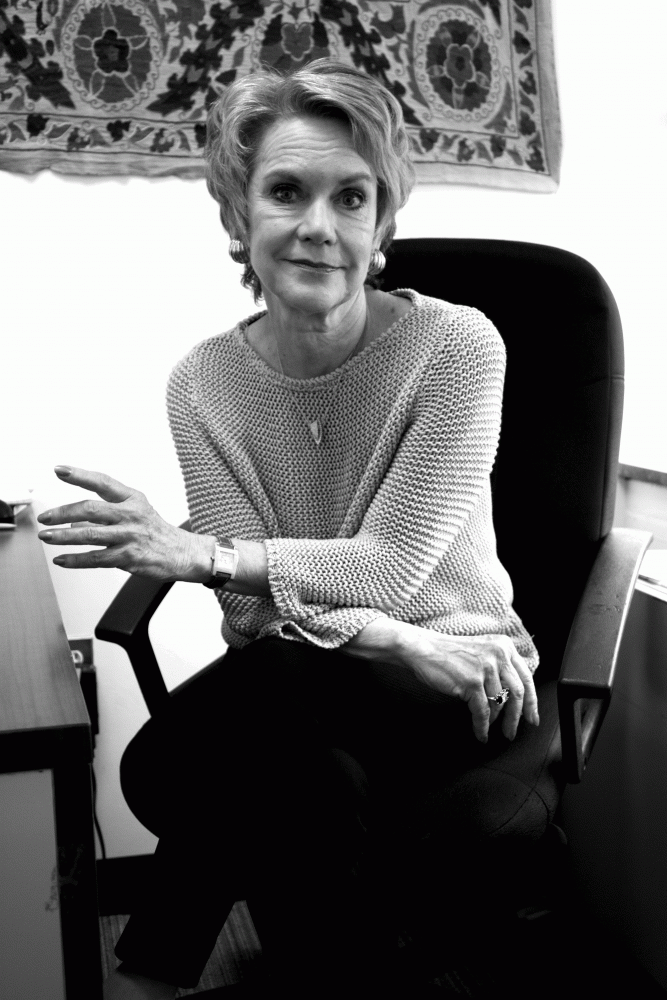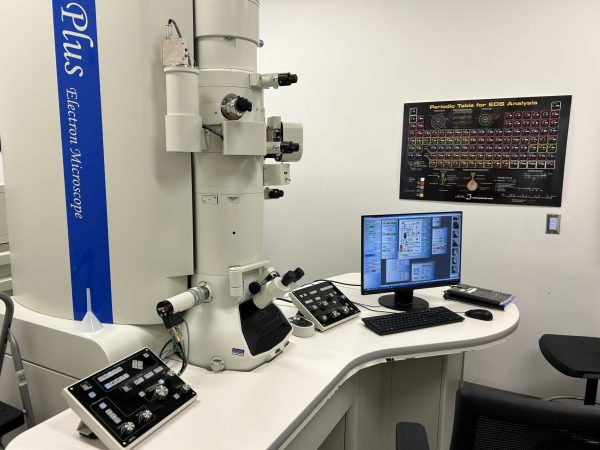Professor Profile: Sally Shelton-Colby
Can you talk about your work with the Bureau for Global Programs?
One of my assistants told me my middle name has got to be “I never met an issue I didn’t like.” He was right about that, because there’s nothing I’m not interested in. All of the technical expertise in AID who worked for me: the economists, the doctors, the egronomists, the environmental scientists, the human rights experts—we all provided this technical assistance to the 84 aid missions around the world. So one minute I’d be worried about HIV/AIDS in Russia, the next about climate change in India, the next about education reform in Egypt. So the range of issues and countries was fantastic, and I loved every minute of it. The higher up you go up the professional ladder, the more responsibilities you have. So sometimes I felt I was doing nothing but management: personnel issues and budget issues and so on. The people working for me were having all the fun developing the education and agriculture and economic programs, etcetera. But I absolutely loved it. During that time I spent a lot of time in the Middle East, I was practically commuting to Egypt. I spent a fair amount of time in Russia, as well. I’ve been blessed to have had a fair amount of wonderful jobs that I’ve learned from. I always encourage students not to take a job that’s going to be easy, find the job that’s going to be hard. Look for the job that’s just a little bit beyond your grasp, because that will stretch you intellectually. Most of us are happier when we’re learning and growing intellectually.
And then you worked with the Organization for Economic Cooperation and Development?
The organization that oversaw the Marshall Plan after World War II subsequently morphed into the Organization for Economic Cooperation and Development. It’s composed of 33 of the most industrialized countries in the world, and there’s a staff of about 2,500 economists and other sets of skills that try to coordinate the economic and social policies of the 33 members. It develops best practices and norms for the member countries, and any non-member countries that want to adopt those practices. For example, it works on a broad range of issues: fiscal policy, monetary policy, economic policy, agriculture, governance, education, health, and so on. I was Deputy Secretary General, and I was responsible for the development portfolio, governance and regulatory reform. Again, it was a huge amount of management.
You said you were frustrated when you worked with Mexican President Vicente Fox on anti-corruption. What do you mean by that?
I got very frustrated because the Mexican legal system is badly in need of reform. So we would discover evidence of corruption, it would go into the judicial system, and judges would do nothing because they were in the pockets of the politicians. So the constraints of an inadequate legal system got to me, and I finally decided to give it up.
One day I was being driven to work and my driver was really irritated because he had been listening to the news while he was waiting for me. The radio broadcasted a story on the cabinet’s salaries. He was just irritated that they were getting paid so much. Some enterprising journalist had requested, under the Freedom of Information Act that we had helped get passed, and here was my driver irritated about this news. He said, “I’m not voting for that party next time, I’ll vote for the opposition.” And I thought, this is democracy at work. This is one small example of something we were doing. Here was someone who had never voted who was now energized to take a part in the process because of a law that we helped get passed.
What about your famous Reagan story?
It was when the National Endowment for Democracy was established during the Reagan administration. Since I was the youngest person on the board, and a woman, I was pushed to the front of the receiving line at the White House to shake hands with the President at the launch. So President Reagan walked in, and I was at the front of the line, so we both put our hands out, and he was talking to me. Then what seemed like hours passed, and he kept holding my hand and talking to me. After a while the Congressman behind me began to giggle quietly and the Senator standing behind him started to giggle, and I could vaguely hear the head of the AFL/CIO standing behind him start to sort of make some noise. I tried to relax my grip, but he didn’t relax his. So I retightened my grip and he kept talking. I think even the audience was tittering at that point. This must have gone on for four or five minutes—a long time, particularly when it’s the president of the United States. To this day I do not know what he said; I was too focused on the handholding. How do you extricate yourself from the grip of the president of the United States? To this day that Senator still teases me about it.
Can you tell me about your work with human rights in the Panama Canal?
The chairman of the House Committee on the Merchant Marine called me into his office. I had been testifying about the need for political change in Nicaragua, and we had been putting pressure on the Nicaraguan government to open up a very closed, controlled system. I was also involved with the selling of the Panama Canal. I strongly believed if we wanted access to the Panama Canal, we better return it to the Panamanians. This Congressman said, “The Panama Canal Treaty is up for approval in the Senate, and it needs approval legislation, which has to go through both chambers of Congress. So you need to take this message back to the administration, you need to make a choice: you keep beating up on my friend, President Somoza of Nicaragua, and you don’t get any legislation for the Panama Canal Treaty or you stop beating up on him, and you get the implementing legislation. So I took the decision back, and it went all the way to the White House. The decision was to put the priority on the Panama Canal Treaty. We then softened our pressure on Somoza, and the rest is history. The center in Nicaragua threw its lot in with the Sandanistas, and war resulted. These are the kinds of really tough decisions you constantly make in government. You have to always keep in mind, what is in the US national interest. All these years later I wonder if we made the right decision. I think we did.
Looking back, what things do you see differently?
I feel conflicted about humanitarian assistance. I now am feeling that I should not have argued for suspending humanitarian assistance to a “bad guy” government, because people should not pay the price for the sins of their government. So I think as one gets more experience in life and thinks about these issues, one’s opinions often evolve. Looking back, are there things that I think the US should have done differently? Yes, Egypt is a big example: we should have leaned much harder on Mubarak. We should have threatened to reduce military assistance, even though that was the price US paid for Camp David, the peace between the US and Israel. But I wish I had pushed harder.
Tell me about your late husband, former director of the CIA during the Nixon administration.
I have this story: We went to the Soviet Union for our first trip. He sent a note ahead to the KGB to say he was coming, as a courtesy. We flew into Leningrad, this was at a time when food was very scarce. We’d skipped lunch, and we were going to the ballet that night. Afterwards, we had a midnight train to Moscow. We ran to the station after the ballet, thinking we could get a sandwich at the station. But there was no food for miles. So we got into our couchette and we hear a knock on the door. There at our door was a six foot tall Russian grinning from ear to ear, holding in his hands two bottles of vodka. Turns out he was our KGB handler, who heard we were thirsty. We had a very nice evening.
Photo by Lori McCue.







